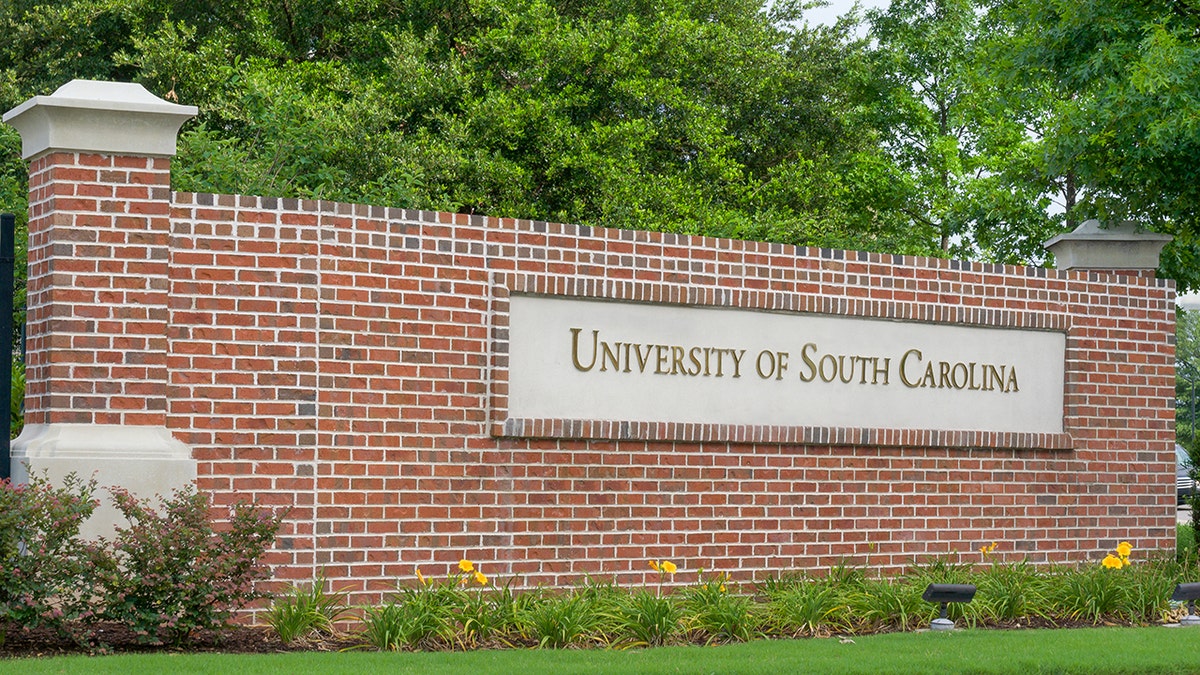'Zoom-bombing': FBI warns some teleconferences, online classrooms vulnerable to hackers
As teleconferences gain popularity during COVID-19, learn the risks and how to avoid security threats. Learn the FBI’s tips for staying secure online, amid Zoom hacker allegations during the pandemic.
Get all the latest news on coronavirus and more delivered daily to your inbox. Sign up here.
Several unknown Zoom users hijacked a virtual cookout hosted by African-American students at the University of South Carolina Friday night, reportedly interrupting the call by dressing in blackface, spewing racial slurs and displaying neo-Nazi symbols as their backgrounds.
The Association of African American Students (AAAS) was hosting its annual spring cookout via the virtual meeting platform Zoom when “unknown persons entered (the Zoom chat) and proceeded to post a plethora of images, videos and messages containing racist slurs and derogatory terms,” according to a statement from the student organization.
The uninvited guests crashed the call around 6:50 p.m., about 50 minutes into the event, student body executive officers said in their own statement. They vowed that “discrimination of any form will not be tolerated within our university and those responsible for this hateful act will be held accountable.”
CLICK HERE FOR FULL CORONAVIRUS COVERAGE

COLUMBIA, SC/USA JUNE 5, 2018: Entrance sign and logo to the campus of the University of South Carolina.
One student on the Zoom call, Aidan Baker, shared cell phone video of his computer screen purportedly showing the moments several people wearing blackface and displaying Nazi symbols entered the chat and began playing profanity-laced audio using the “n-word. "He said he assumed those responsible were teenagers.
It was not immediately known whether those who hijacked the call were university students because their identities were hidden.
The University of South Carolina campus in Columbia has been closed and all in-person student events postponed under the statewide stay-at-home order meant to curb the spread of the coronavirus.
“What happened at the AAAS Cookout is absolutely unacceptable & disgusting,” University of South Carolina President Bob Caslen tweeted Friday. “I can’t apologize enough to the @UofSCstudents who witnessed such ignorance while gathering to fellowship with one another during this unprecedented time. University officials are aware & are investigating.”
In a follow-up letter, Caslen said the university launched a “vigilant response” to the incident which involved contacting Zoom to request an investigation and tasking the office of equal opportunity programs with determining whether the perpetrators were enrolled as students at the university.
“This incident runs contrary to the values we hold as Gamecocks, but also to the values we hold as a nation,” Caslen wrote. “We all stand together with AAAS. We stand together as Gamecocks in the face of this reprehensible event. We pledge once again our continuing commitment to respect the dignity of all human beings and the ideals of the Carolina Creed.”
FLORIDA JUDGE URGES LAWYERS TO GET OUT OF BED AND GET DRESSED FOR ZOOM COURT CASES
“Zoom gatherings nationwide have been crashed by individuals intent on spreading hateful messages. And, while Zoom has implemented recent security upgrades, clearly vulnerabilities still exist,” the letter said, advising students and staff members who use the platform to secure meetings by following Divisions of Information Technology guidelines.
In a statement to WIS-TV in Columbia, Zoom said: “We have been deeply upset to hear about these types of incidents. Zoom strongly condemns such behavior and recently updated several features to help our users more easily protect their meetings."
The company said it has enabled default passwords and virtual waiting rooms and has made meeting IDs less visible "to help prevent unintended sharing."
CLICK HERE TO GET THE FOX NEWS APP
“Through our offering of training, tutorials and webinars, including our CEO Eric Yuan’s weekly privacy and security webinar, Zoom is continuing to engage with all of our users on how they can best use Zoom and protect their meetings," the company said. "We encourage users to report any incidents of this kind either to Zoom so we can take appropriate action or directly to law enforcement authorities."


